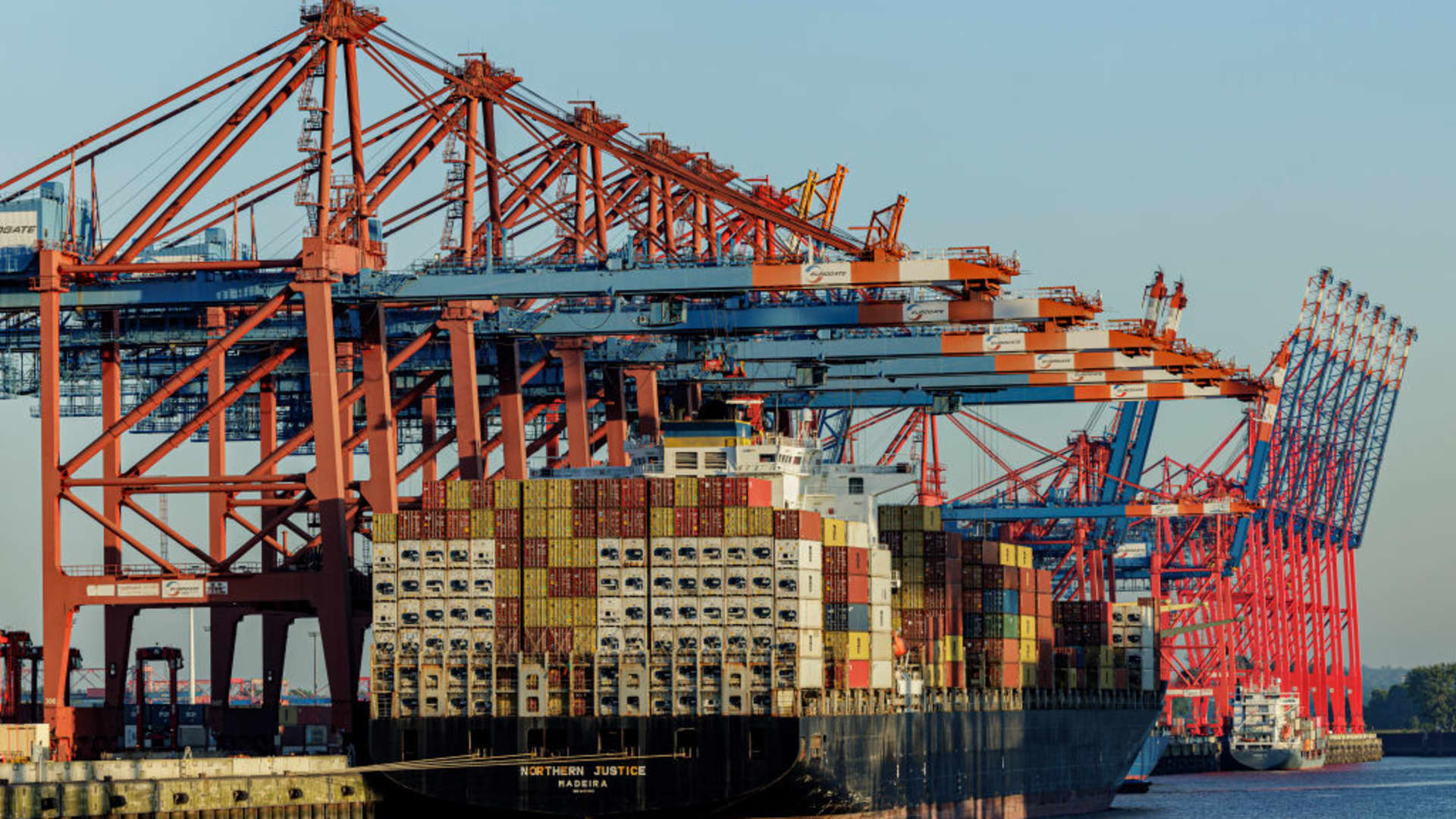
Germany trade entered negative territory in May, raising questions about the stability of its economy in the wake of Russia’s invasion of Ukraine.
Picture Alliance | Picture Alliance | Getty Images
Germany is no longer exporting more than what it buys from other countries, highlighting the strains that the nation and other European economies are facing from surging energy and food prices.
Data released Monday showed that in May, Germany posted a foreign trade deficit of 1 billion euros ($1.03 billion). This marks a significant moment for the German economy, which had reported trade surpluses for several decades. Bloomberg reported that 1991 was the last time the country reported a monthly trade deficit.
Its high level of exports had been an important economic driver and the trade surplus was even attacked by former President Donald Trump, who wanted Americans to buy more U.S.-made products.
“Germany’s vaunted trade surplus is gone,” Carl Weinberg, chief economist at High Frequency Economics, said in a note Tuesday, adding that “higher prices for imports of energy, food and materials are goosing up the import bill.”
Germany’s exports in the month of May were still 11.7% higher than a year ago, according to the country’s statistics office, though 0.5% lower from the previous month.
However, the imports bill went up by 27.8% from a year ago and it was no longer offset by its sales abroad.
Germany — just like many other European nations — has been paying more for energy and food, particularly in the wake of Russia’s invasion of Ukraine. Russia, a key exporter of energy into Europe, reduced gas flows to the bloc, bringing new insecurities to the energy market and driving up prices.
In addition, Ukraine, an important exporter of wheat and other food-related items, has not been able to send its products abroad at the same rate as before the war. Farmers are also not able to sow and plant at the same rate as before either — potentially driving up food prices when harvest time comes.
GDP contraction?
The latest data comes at a time when more and more economists are talking of a recession in Europe within the next 12 months. In fact, the euro dropped to its lowest level in two decades against the U.S. dollar Tuesday morning as more investors price in a higher chance of economic turmoil down the line.
Chris Scicluna and Emily Nicol, two economists at Daiwa Capital, said that Germany’s first trade deficit since 1991 reflects price shifts and ongoing export weakness.
“With the annual pace of increase in German import prices in May (30.6%Y/Y) almost twice the rate of export prices (15.9%Y/Y), Germany’s trade balance was always bound to deteriorate,” they said in a research note Monday.
“However, adjusting for shifts in relative prices, ongoing weakness in export volumes, in part related to supply constraints, has also played a role.”
They added that the data suggests there is a “strong likelihood” that net trade subtracted from German economic growth in the second quarter, “and adding to the risks that German GDP contracted last quarter.”




